#monkstown
Explore tagged Tumblr posts
Text


My neighbourhood in Dublin after the storm
5 notes
·
View notes
Text
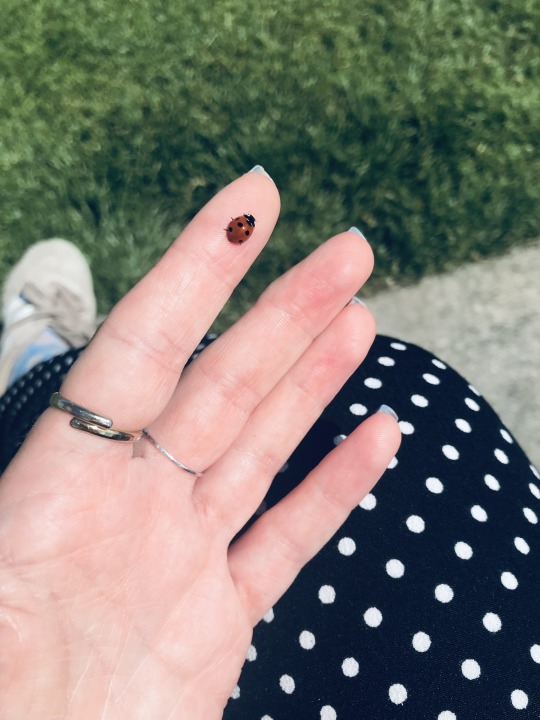
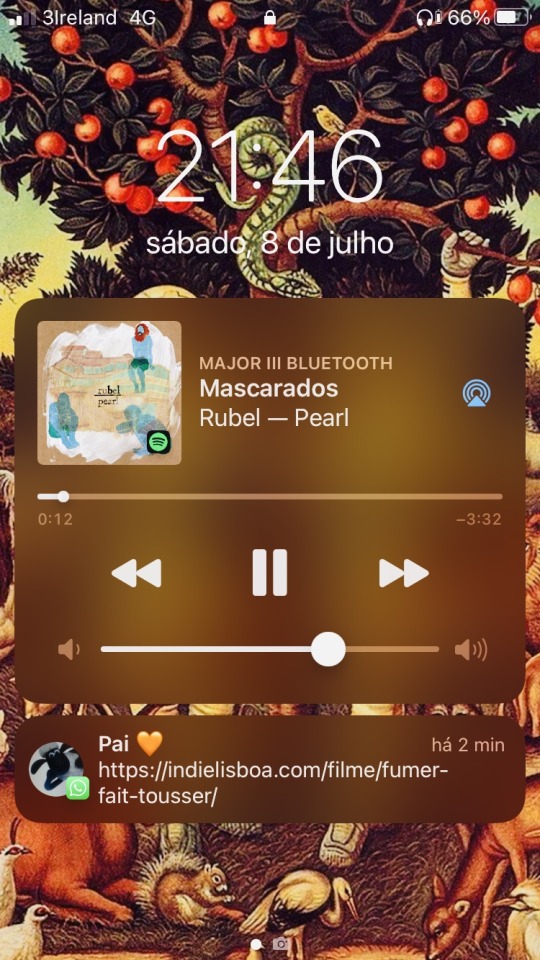



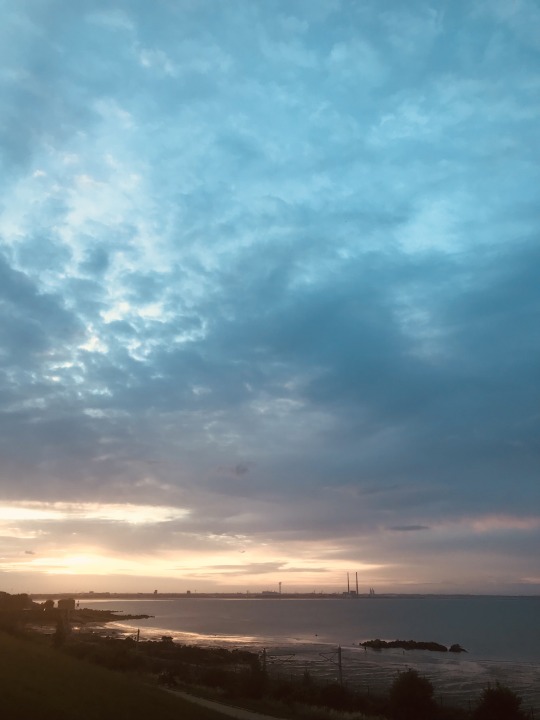

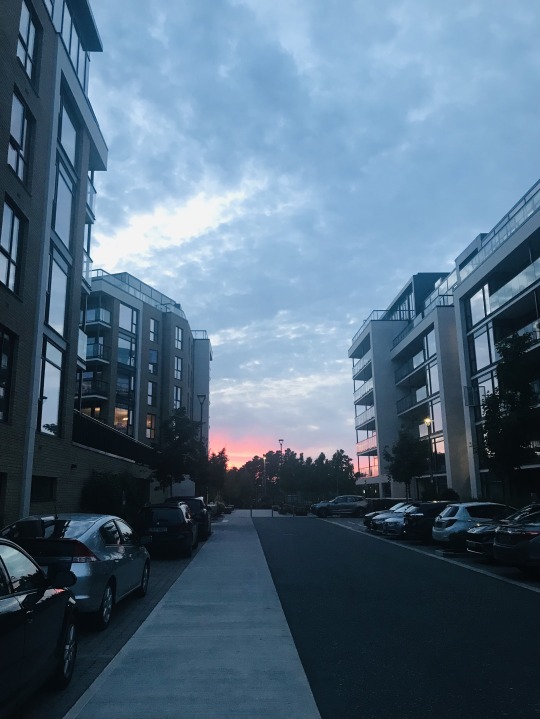
L A S T WEEKEND 🐞 Felt the Midas ladybug touch and the heat of the Irish sun. For a second thought I'd come undone. Got inspired. Threw caution to the wind. Embraced the inability to draw a life plan.
#dublin#monkstown#no plan#seapoint#dun laoghaire#dublin buy#dart#ladybug#blackrock#weekend#recap#photo dump#throw caution to the wind#ireland#sun#summer#july 2023#photo diary#life lately#life plan#inspiration#life is good
3 notes
·
View notes
Text

10 March 2025, Dublin. Good Morning
1 note
·
View note
Text
LONGFORD TERRACE AND CLOSE BY
Longford Terrace, Monkstown is a set of 28 houses in two terraced blocks of Victorian buildings all of which face the sea and the railway track. There is a linear park between the houses and the railway and I think that it is known as Seapoint Park.
SALTHILL AND MONKSTOWN TRAIN STATION I got off the train at Salthill-Monkstown Station with the intention of walking to Dalkey but I ended up exploring the Glenageary area instead. Longford Terrace, Monkstown is a set of 28 houses in two terraced blocks of Victorian buildings all of which face the sea and the railway track. There is a linear park between the houses and the railway and I think…
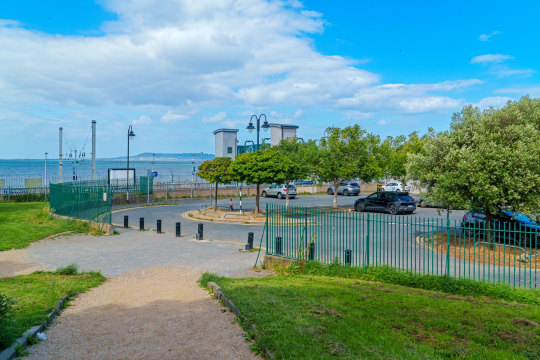
View On WordPress
#1 July#18-105mm Lens#2023#DART#Dun Laoghaire#FX30#Ireland#Longford Terrace#monkstown#Public Transport#railway#salthill#sea#Seapoint Park#Sony#Train station
0 notes
Text
The Four Penny Castle
Now surrounded by suburban housing, Monkstown Castle, County Cork once stood proud in its own grounds and overlooking the estuary of the river Lee and access to Cork harbour. The building dates back to the 17th century when it was constructed c.1636 by one Anastasia Gould, wife of John Archdeacon, said to have been a naval officer who was overseas supporting the King of Spain. Legend has it that…

View On WordPress
2 notes
·
View notes
Text
Quick Lunch Ideas from Greenville Deli !

Come up with quick lunch ideas using Greenville Deli dishes, as their recipes are tasty, filling and feature fresh, local goods.
0 notes
Text

Best Plaster Repairs in Monkstown
Are you looking for Best Plaster Repairs in Monkstown ? Then contact S.Sheppard Plastering Service.
0 notes
Text
'If Peaky Blinders made the Irish actor a household name, will Christopher Nolan’s nuclear blockbuster send him into the stratosphere? He talks about extreme weight loss, hating school and why his next character won’t be a smoker.
Cillian Murphy is struggling with what he can and can’t say about his title role in Oppenheimer, the latest Christopher Nolan epic, such is the secrecy surrounding this film. Murphy is under “strict instructions” not to talk about the content. Which is awkward when you’ve flown to his home in Ireland to interview him specifically about playing the physicist who oversaw the creation of the atomic bomb, later detonated over Hiroshima and Nagasaki. It’s not clear who issued these instructions. Nolan? The studio? The US government? All I know is that as well as Murphy being gagged by hefty NDAs, I am not allowed to see it (“bit unfortunate”, he concedes).
So, yes, here we sit in an empty upstairs room of a restaurant near his house in Monkstown, Dublin, working out how to do this. The room is dark, the sun shining through a solitary Velux lighting his features like a Géricault. The only background noise is the low hum of a wine refrigerator. Murphy loathes interviews, looks visibly tortured at points. But he relaxes when I ask if he’s pleased with Oppenheimer. “I am, yeah,” he says. “I don’t like watching myself – it’s like, ‘Oh, fucking hell’ – but it’s an extraordinary piece of work. Very provocative and powerful. It feels sometimes like a biopic, sometimes like a thriller, sometimes like a horror. It’s going to knock people out,” he adds. “What [Nolan] does with film, it fucks you up a little bit.”
Nolan wouldn’t disagree. The director recently told Wired magazine that some of those who’d seen it were left “absolutely devastated … they can’t speak”. Which sounds like a bad thing, but is related perhaps to the thought of the 214,000 Japanese people, overwhelmingly civilians, who lost their lives when the bombs were dropped. Kai Bird, the historian who co-authored American Prometheus, the 2008 biography of J Robert Oppenheimer upon which the film is based, said he was still “emotionally recovering” from seeing the film, clarifying that it was “a stunning artistic achievement”.
Murphy’s portrayal is said to be astonishing (“Oscar-worthy” is the buzz). This is not unbelievable. While Hollywood might not know him as a leading man, this quietly intense actor has long been celebrated in the UK and Ireland, most notably for his nine-year stint as Tommy Shelby in Peaky Blinders. When he first appeared on our screens, looking like a renaissance painting of Saint Sebastian – chiselled head contrasting with translucent blue eyes – it was impossible not to be distracted. He appeared first on stage in Enda Walsh’s Disco Pigs, then the screen adaptation. Then 28 Days Later; Intermission; Ken Loach’s The Wind That Shakes the Barley. Previous collaborations with Nolan include the Dark Knight trilogy, Inception and Dunkirk, “significant milestones in my career,” he says, adding that Nolan “might be the perfect director”.
It was Nolan’s wife, the producer Emma Thomas, who called Murphy one afternoon at the home he shares with his wife, artist Yvonne McGuinness, and two teenage sons. Nolan doesn’t actually have a telephone, or an email, or computer for that matter: “He’s the most analogue individual you could possibly encounter.” So, Emma said Chris would like a word and passed the receiver, then the director came on the line. “Cillian, I’d love you to play the lead in this new thing,” he said. Murphy tries to recreate his response to this news. “I was lost for words. But thrilled. Like beyond thrilled.” It is characteristic of Murphy that the modulation of his voice barely changes as he expresses this. He was so stunned, he had to sit down. “Your mind explodes.”
In the absence of the three-hour feature, I scrutinise Oppenheimer’s three-minute trailer. It’s a rush of snapshots against the crackling of a Geiger counter. There’s Murphy, short back and sides, lifting 1940s eye goggles; blue and red atoms coming at him fast; orange light; white light; blackout; silence. Massive explosion against the backdrop of space. Overlaid is Murphy’s narration, “We’re in a race against the Nazis / and I know what it means / if the Nazis have a bomb.” There’s Matt Damon looking porky as army general Leslie Groves, director of the Manhattan Project: “They have a 12-month head start.” Murphy, pointing with cigarette: “18.”
He has put back on some of the weight he lost for the part, I’m relieved to see; his skin isn’t quite so taut over his skull and there are freckles over those eagle-wing cheekbones. He was determined to nail the scientist’s silhouette “with the porkpie hat and the pipe”, testing himself to see how little he could eat. “You become competitive with yourself a little bit which is not healthy. I don’t advise it.” He won’t say how many kilograms he lost, or what food the nutritionist told him to cut out. NDA? “Ach, no. I don’t want it to be, ‘Cillian lost x weight for the part’.”
Then again, the hurtling speed at which Nolan worked, crisscrossing the US, made it easy to skip meals. Murphy began to forget about food in the same way he began to forget about sleep. “It’s like you’re on this fucking train that’s just bombing. It’s bang, bang, bang, bang. You sleep for a few hours, get up, bang it again. I was running on crazy energy; I went over a threshold to where I was not worrying about food or anything. I was so in it, a state of hyper …” he gropes for the word, “hyper something. But it was good because the character was like that. He never ate.” Oppenheimer subsisted on little more than Chesterfield cigarettes and double-strength martinis, rims dipped in lime. “Cigarettes and pipes. He would alternate between the two. That’s what did for him in the end,” Murphy adds, a nod to the scientist’s death from cancer in 1967. “I’ve smoked so many fake cigarettes for Peaky and this. My next character will not be a smoker. They can’t be good for you. Even herbal cigarettes have health warnings now.”
I raise method acting and Murphy tilts his head and frowns. “Method acting is a sort of … No,” he says, firm but with a half smile. Oppenheimer had many defining characteristics, not least walking on the balls of his feet and a vocal tic that sounded like nim-nim-nim, but Murphy didn’t want to do an impression. Nolan was obsessed with the Brillo-texture hair, so they spent “a long time working on hair”. And the voice. The real question for Murphy was what combination – ambition, madness, delusion, deep hatred of the Nazi regime? – allowed this theoretical physicist to agree to an experiment he knew could obliterate humankind. “He was dancing between the raindrops morally. He was complex, contradictory, polymathic; incredibly attractive intellectually and charismatic, but,” he decides, “ultimately unknowable.
“Listen, it’s not like a spoiler,” he says, checking himself before he leans in, “but there are incidents in his early life that were quite worrying; very erratic.” They are in the film and the book, he steers. I suspect he is referring to Oppenheimer’s postgrad at Cambridge in 1926, when he placed a poisoned apple on the desk of a tutor towards whom he harboured complicated feelings of inadequacy and jealousy. Arguably, this was attempted murder. But Oppenheimer’s rich New York parents rushed in to bundle him into psychoanalysis. He was diagnosed with “dementia praecox”, a term describing symptoms associated with schizophrenia.
Murphy likes these complex characters; they’re his meat. People that don’t necessarily follow the – yawn – traditional transformative arc of storytelling. Not villains, exactly (although he’s played a few, including Scarecrow in Dark Knight and Jackson Rippner in Red Eye): “Villains are good if they’re well written, but if it’s one note or a trope, then they are dull.” He likes a script to stretch leisurely into all corners of the human condition, “all the shades”. At the same time, you have to understand his exceptional ability to portray interiority, physically manifesting intense human emotion without a word, radiating fierce, consuming energy. Which he does today, actually, when I stray off track.
Although Nolan is usually, shall we say, antiseptic in his approach to romance, Oppenheimer represents a significant shift. He told Wired the love story aspect “is as strong as I’ve ever done”. It features prolonged full nudity for Murphy and Florence Pugh, who plays Oppenheimer’s ex-fiancee, as well as sex, and there are complicated scenes with Emily Blunt, who plays his wife, “that were pretty heavy”. Murphy turns coy: “I’m under strict instructions not to give away anything.”
He asks if I’ve heard of chemistry tests. “They put two actors in a room to see if there’s any spark, and have all the producers and director at a table watching. I don’t know what metric they use, and it seems so outrageously silly, but sometimes you get a chemistry and nobody knows why.” This is a roundabout way of saying his scenes with Blunt and Pugh conjure this magic. His established bond with Blunt (they co-starred in A Quiet Place II) meant “the audience gets something for free”, he says. “You can be immediately vulnerable and open, and try stuff. There were moments where I remember saying, ‘I couldn’t have done that if it wasn’t with you.’”
Murphy, 47, grew up the eldest of four in Cork. His father was a civil servant, his mother a French teacher. They were a middle-class family, musical; his father “can pick up any instrument”, his brother played piano, and they regularly got stuck into “traditional Irish sessions”. Bookshelves were stuffed with literature, the radio often on, the “shitty” TV set not so much. Home life was busy but his parents taught him French and Irish, and sent him to an all-boys academic, rugby-playing private school. “I got all the education” he says, drily.
The story of how much he disliked the Presentation Brothers College, the hard-drinking masculine emphasis, how he found solace playing guitar in a band, is much rehearsed and he says today he doesn’t want “to slag the school off. I hear it’s great now.” Something about this experience seems nonetheless unsettling. He had one friend, who is still his best friend, “so I wasn’t, like, an outcast”. He played rugby for the first couple of years, but abandoned it “because everyone was all of a sudden towering over me.” Was it an unhappy time? He shifts. “It was OK. I was a bit of a messer, like I’d get in trouble and say nothing. It wasn’t the ideal school for me.”
He enrolled in and dropped out of a law degree at University College Cork, which created some friction with his parents (when I ask if his own sons will go to university in Dublin, he says, “Whatever they want”). He continued with the band, his first creative love but the one that got away. When they were offered a contract with Acid Jazz records, he turned it down for a number of reasons, he says, crucially that he didn’t feel good enough. He still writes and plays at home but, no, you won’t be hearing any of his recordings, ever, he says.
It’s a funny thing talking to Murphy. He’s at once garrulous (on the craft, or literature, or ideas) and reticent (pretty much anything else). I sense in previous interviews that he skates over issues close to his heart – such as the expression of emotion in Ireland and the need to teach empathy in schools. But when I try to drill in to these topics, get to the root, he clams shut, emitting energy like a nuclear reactor.
Later, in a different context, he will tell me a truth: “I’m stubborn and lacking in confidence, which is a terrible combination. I don’t want to put anything out that I don’t think is excellent.” But he clearly hates the pantomime of publicity, asking why I am returning to certain topics and repeating lines I’ve read elsewhere. I can almost see him at home with its views towards the Irish Sea, complaining to his wife as they tuck into supper: “Another one, asking the same fucking questions.”
If he could get out of going to Cannes, of standing on red carpets, dressed as is his habit for a funeral, hair shellacked, hands in pockets; if he could turn his back on the coloured-foam mics thrust in his face, he would. He really would. No, it dawns on him now, there’s something even worse than the red carpet; there’s the talkshow rounds. The very word “talkshow” comes out of him like a pain from his ribcage, as if the parcelling out of amuse-bouche anecdotes, offering them up to the forced laughter of that false god of show business, the studio audience, is in itself the most cheapening experience known to mankind.
“I do them because you’re contractually obliged to. I just endure them. I’ve always found it difficult. I’ve said this so many, many times.” Then there’s the double wince of realising that, yes, he’s done it again. He’s laid into the industry that feeds him. His hands raise slowly in surrender. “I want to just caveat this by saying, I’m so privileged. I’m so happy to be doing what I love. I’m really lucky. But I don’t enjoy the personality side of being an actor. I don’t understand why I should be entertaining and scintillating on a talkshow. I don’t know why all of a sudden that’s expected of me. Why?”
There’s an awkward silence. I say that he reminds me of Naomi Osaka, the tennis player who refused to talk to journalists after the French Open in 2021. He says he feels “100%” sympathy with her, “because why should she have to perform?” Then he relents. “But I get it. I get it’s a kind of ecosystem where the film feeds the publicity which feeds the talkshows which goes back and feeds the film, so, like, that’s how it works. I suppose I’m just not good at it. At interviews, at this stuff,” he gestures at me. He says after he leaves me today he’ll be going down the stairs thinking of all the things he’s said and worrying it’s come across all wrong. “Do you know what Sam Beckett said? ‘I have no views to inter.’ I love that. That should be the interview.”
We return to his art, the tension falls away and he’s back to his charming self, charged air evaporating. Since Oppenheimer, he’s also wrapped Small Things Like These, an adaptation of Claire Keegan’s brilliant novella set in 1985 in a small Irish town on the edge of which is a convent and “laundry”. Murphy is a huge fan of Keegan. He remembers reading her 2010 novel Foster on a train and having to pull his hoodie over his face because he was crying so hard. Anyway, he’d wanted to work with the Peaky Blinders director Tim Mielants and they were throwing ideas around in his sitting room when Murphy’s wife suggested Small Things. “No, there’s no way,” Murphy said. “That’s going to be gone already.” But when he called the agent, he found it was available. “I went, ‘No, you’ve got to be fucking kidding.’” Murphy pitched the idea to Matt Damon, who has set up a studio with Ben Affleck. “From there it all just happened really quickly.”
Murphy plays Bill Furlong who, funnily enough, is a man of few words. Keegan’s light-touch writing is everything he loves in art – the sense that you are not being bashed over the head by an idea. That’s how he tries to act, he adds. “I’m always trying to cut lines in scenes, because I feel like you can transmit it. Like when you see a person on a train thinking, or driving a car, and you are purely observing someone and feeling the energy that is vibrating from them. That’s the sort of acting I love. In a lot of film and television, they want to cut those bits to go to the action. I like films that pose the big questions and then leave it to the audience.” Perhaps this is at the heart of his reticence in interviews? That he doesn’t feel the need to explain.
He still finds it “nuts” that the last of the Magdalene laundries closed in 1996, that it was illegal to buy condoms in Ireland until 1985, that divorce was made legal only in 1996. He remembers vividly thousands of people still going to see moving statues in Cork when he was growing up. “Crazy. But, like, how far the country has come since then, we’re so socially advanced now compared with where we were. But you must look back. And art is a better way of doing that than reading all these reports [into the laundries].” (Afterwards, he emails me: “The nation is actually dealing with an unresolved collective trauma. Who knows how long this will take to heal, but I feel strongly that art, film and literature can help with that process. It’s a kinder and gentler sort of therapy. I hope that our movie can help with that in its own little way.”)
Because he’s a nice man, because he doesn’t want me to feel bad about our encounter, and because he’s generous and hospitable, Murphy finishes by telling me some of the best places to visit in Ireland. He and his family are staying here for the summer. They’ve had it with air travel and his home town of Cork is only a couple of hours away. He supplies me with other recommendations: a great book he’s just read, Brian, by Jeremy Cooper, oh, and there’s the Francis Bacon studio exhibition I should catch on my way out.
But before I go, what has he learned from playing Oppenheimer? Foremost, he says, that scientists think differently. He knew this already from playing physicist Robert Capa in Danny Boyle’s Sunshine (2007) and hanging out in Cern, home of the Large Hadron Collider in Geneva, for research. “I had dinner with all these geniuses. I’ll never understand quantum mechanics, but I was interested in what science does to their perspective.” He sought their opinions on subjects that matter – love, politics, our place in the universe, “infinity, or whatever the fuck. Because they have a completely different way of taking in information than we do. I remember one scientist saying, ‘I don’t believe in love. It’s a biological phenomenon, the exchange of hormones between the female and the male. That’s all. Love is a nonsense.’” Murphy taps the table with his hand. “I couldn’t go along with that, obviously.”
#Cillian Murphy#Oppenheimer#Christopher Nolan#Emily Blunt#Florence Pugh#Danny Boyle#Sunshine#Brian by Jeremy Cooper#Small Things Like These#Claire Keegan#A Quiet Place II#Peaky Blinders#Tommy Shelby#Disco Pigs#28 Days Later#Intermission#The Wind That Shakes The Barley#The Dark Knight Trilogy#Inception#Dunkirk#Scarecrow#Jackson Rippner#Red Eye#Bill Furlong
186 notes
·
View notes
Text
Chapter Twenty (Part 4)

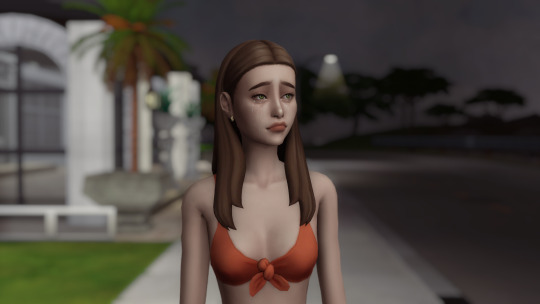
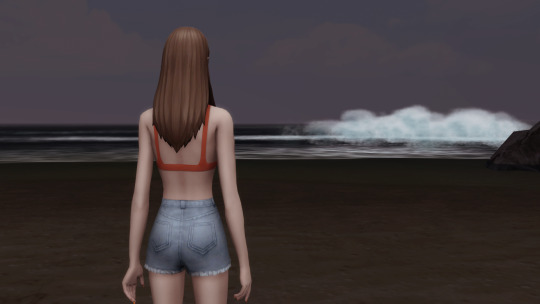
When I’m certain he’s gone and he’s not coming back, I finally allow my muscles to collapse, and as soon as I do the tears start flowing again. My eyes are already raw, and my throat sore from the last time, and my fingers come to clutch at my heart and my throat as though I need to pull away the invisible hand strangling me. I hurry away from Marnie’s house, down the ramps towards little Seapoint Beach, where the dark sand is littered with slimy seaweed and rubbish from the day, and the moon glints off the waves, white spumes of foam peaking with each undulation. I sit on a wet, green rock and take out my phone. I feel desolate. Sucked under by my loneliness, the knowledge that I have ruined everything and there are things I’ve broken that I may never repair. There is only one person in the world left to call, and I dial the number.

His voice is cracked and sleepy as it comes over the line. “…Hello?”
I realise that I won’t be able to speak to him without crying. It takes me a long moment to gather myself, my chest heaving with an anticipatory sob.
He repeats himself, more soberly this time. “Hello? Evie, is that you?”
“Hi Shane.” I blubber. “I’m so sorry I called you.”
“What’s wrong?”
I sniff. “Are you… I’m so sorry I know it’s like, almost three in the morning… are you still in Cyprus?”
“No, I’m not, we got back earlier today.”
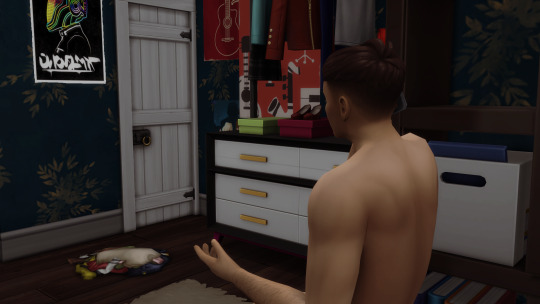
“Oh. You’re in Dublin right now?” my heart lifts with the thought of him being nearby.
“No, I’m at home in Tullamore at the minute, in mam and dad’s, why?”
“Oh, it’s okay then, don’t mind me.”
I hear fabric crunching over the line, presumably his duvet as he gets out of bed. His voice comes down the line urgently. “Evie, what’s happening? Are you okay?”
“No.” I admit with a soft hiccup, and then my shoulders begin to shake. I bring my free hand to my face, my nose running over my mouth.
“Where are you?”
“I’m on Seapoint Beach.”
“Alright. Can you stay there? Are you safe?”
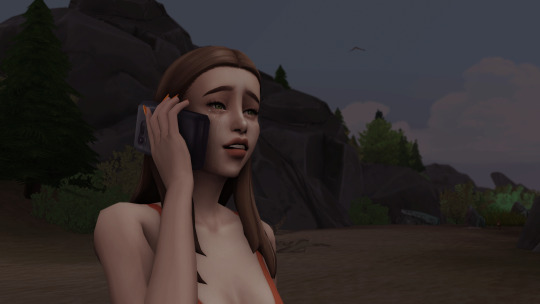
I nod. “Yeah, I’m fine, I’m just a bit cold.”
I hear him moving about and the thump of a shoe against the floor. “Hang on, I’m coming.”
“Shane, you’re too far away.”
“I’ll be an hour and a half, there’s no traffic at this time… where’s my keys…”
“I don’t want you to have to do this… I’m sorry I called you and woke you up, you must be so tired…”

“It’s nothing.” He insists. “I’m on the way. Seapoint Beach, the one between Blackrock and Monkstown, right?”
I sniffle “Yeah.”
“Stay there, okay? Don’t move a muscle. I’m coming now.”
“Okay.”
“Call me if you move, or if anything happens. I’ll have my phone with me the whole time.”
“Thank you.”
“It’s grand. It’s nothing.”

We hang up and I wait.

I hear the distant swish of tyres on the road before I see him. The sky is lightening already, even in these early hours of the morning, and his Fiat Punto is backlit with hazy purple as he pulls up to the curb at the entrance to the beach. I gasp with relief when I see him, he gets out of the idling car and I run up the ramp towards him.
“Evie.” He says as I launch myself into his arms. We don’t usually hug each other, not like this, but tonight he wraps his arms around me and holds me to his broad chest so tightly that I’m afraid he’ll crush my ribs to dust. “I’m here now.” He says.
“I can’t believe you came all the way.” I say, the sound muffled in his fleece as he rubs my back. “Sure, of course I did. What else was I meant to do?”
“You could have left me here.”
“I’d never do a thing like that.” he says it with this kind of disturbed edge to his voice, as though he can’t fathom that there are men out there who would. He looks down at me and tuts softly. “What are they after doing to you at all?”

“I can’t.” I sob. “I can’t talk about it now.”
“That’s fine.” He says, and then hesitates before saying, “Where’s your top?”
“Oh.” I say, looking down at my bikini and shorts combo. “The rest of my clothes are in a bag inside the house. I’ll just leave them there.”

“A whole bag of stuff, like?”
I nod.
“I’ll go in and get it for you.”
“You don’t have to, Shane, really, it’s fine.”
“Is there anything important in the bag?”
I pause. “My purse and my phone charger are there.”
“I’ll get it.” He says decisively, and then when I look at him worriedly he reassures me. “I won’t look at or talk to anybody, I’ll just quietly go in and get it and then I’ll leave.”
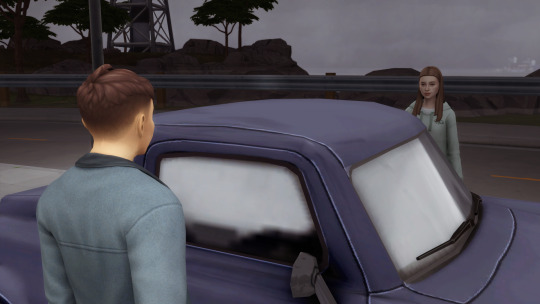
I tell him where the bag is and how to find it, and then I wait by the car. It’s only five minutes before he comes back with it, takes my hoodie out and tosses it to me. “Throw that on you there.”
“Shane…�� I say as he stands at the driver’s side door across from me. “I’m glad that you came.”
“Yeah it’s no problem.”
“And I’m so sorry.”
“No sure, it didn’t end up being a long drive at this hour anyway.”
“No, I mean, I’m sorry for everything else that-”
“I know you are.” He interjects. “And I’m saying you’re alright, we’re here now, it is what it is. I’m just glad you called me.”
“I’m glad too.”
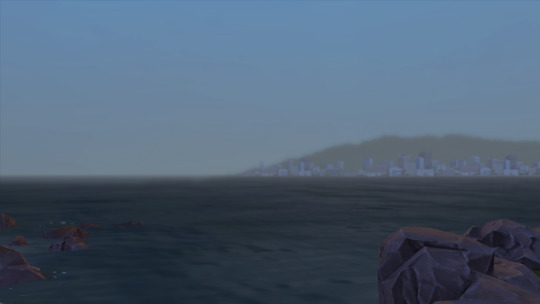
He gets into the car and leans over to open the door on my side. “Come on, in you get. I’ll take you home to your mam.” And I do, and he sticks on the radio as we pull away, driving on towards the rising sun.
End of Part 2
Beginning // Prev // Next
31 notes
·
View notes
Text
The reasons for this are kind of sad. People tried to look through his windows? I'd be freaked out!
2 notes
·
View notes
Text
2024 olympics Ireland roster
Athletics
Mark English (Letterkenny)
Andrew Coscoran (Balbriggan)
Cathal Doyle (Bettystown)
Luke McCann (Dublin)
Brian Fay (Dublin)
Thomas Barr (Waterford)
Christopher O'Donnell (Loughborough, U.K.)
Eric Favors (Haverstraw, New York)
Sharlene Mawdsley (Newport)
Rhasidat Adeleke (Tallaght)
Sophie Becker (Ballykelly)
Ciara Mageean (Portaferry)
Sophie Bideau-O'Sullivan (Melbourne, Australia)
Sarah Healey (Monkstown)
Jodie McCann (Dublin)
Sarah Lavin (Lisnagry)
Fionnuala McCormick (Wicklow)
Philippa Healy (Ballineen)
Kelly McGrory (Laghy)
Nicola Tuthill (Kilbrittain)
Kate O'Connor (Dundalk)
Badminton
Nguyen Nhat (Dublin)
Rachael Darragh (Letterkenny)
Boxing
Jude Gallagher (Newton Stewart, U.K.)
Dean Clancy (Sligo)
Aidan Walsh (Belfast, U.K.)
Jack Marley (Dublin)
Daina Moorehouse (Dublin)
Jenny Lehane (Ashbourne)
Michaela Walsh (Belfast, U.K.)
Kellie Harrington (Dublin)
Gráinne Walsh (Tullamore)
Aoife O'Rourke (Castlerea)
Canoeing
Liam Jegou (Huningue, France)
Noel Hendrick (Dunadea)
Michaela Corcoran (Montgomery County, Maryland)
Madison Corcoran (Montgomery County, Maryland)
Cycling
Ben Healy (Kingswinford, U.K.)
Ryan Mullen (Colwyn Bay, U.K.)
Megan Armitage (Tullamore)
Erin Creighton (Belfast, U.K.)
Mia Griffin (Glenmore)
Alice Sharpe (Cambridge, U.K.)
Kelly Murphy (London, U.K.)
Lara Gillespie (Dublin)
Diving
Jake Passmore (Leeds, U.K.)
Ciara McGing (London, U.K.)
Equestrian
Austin O'Connor (Mallow)
Cian O'Connor (Dublin)
Shane Sweetnam (Cork)
Daniel Coyle (Ardmore, U.K.)
Abigail Lyle (Bangor, U.K.)
Susie Berry (Dromore)
Sarah Ennis (Howth)
Aoife Clark (Dublin)
Field hockey
Kyle Marshall (Markethill)
Peter McKibbin (Belfast, U.K.)
Jonny Lynch (Lisburn)
Peter Brown (Banbridge)
Nick Page (London, U.K.)
David Harte (Ballinspittle)
Tim Cross (Melbourne, Australia)
John McKee (Banbridge, U.K.)
Matthew Nelson (Belfast, U.K.)
Daragh Walsh (Dublin)
Shane O'Donoghue (Dublin)
Sean Murray (Lisburn, U.K.)
Jeremy Duncan (Kilkenny)
Michael Robson (Belfast, U.K.)
Ben Walker (Glenageary)
Lee Cole (Shankill)
Ben Johnson (Waterford)
Golf
Rory McIlroy (Jupiter, Florida)
Shane Lowry (Dublin)
Stephanie Kallan (Phoenix, Arizona)
Leona Maguire (Cavan)
Gymnastics
Rhys McClenaghan (Dublin)
Rowing
Daire Lynch (Clonmel)
Philip Doyle (Banbridge, U.K.)
Fintan McCarthy (Skibbereen)
Paul O'Donovan (Lisheen)
Ross Corrigan (Enniskillen, U.K.)
Nathan Timoney (Enniskillen, U.K.)
Holly Davis (Bollincollig)
Alison Bergin (Cork)
Zoe Hyde (Killorglin)
Margaret Cremen (Rochestown)
Aofie Casey (Skibbereen)
Aifric Keogh (Furbo)
Fiona Murtagh (Galway)
Emily Hegarty (Skibbereen)
Natalie Long (Cobh)
Eimear Lambe (Dublin)
Imogen Magner (Ely, U.K.)
Rugby
Jack Kelly (Dublin)
Andrew Smith (Dublin)
Harry McNulty (Cashel)
Mark Roche (Glenageary)
Zac Ward (Downpatrick)
Chay Mullins (Bristol, U.K.)
Jordan Conroy (Tullamore)
Hugo Keenan (Dublin)
Hugo Lennox (Skerries)
Terry Kennedy (Dublin)
Gavin Mullin (Blackrock)
Niall Comerford (Dublin)
Sean Cribbin (Dublin)
Bryan Mollen (Glasthule)
Kathy Baker (Navan)
Megan Burns (Tullamore)
Amee-Leigh Murphy-Crowe (Dublin)
Alanna Fitzpatrick (Portarlington)
Stacey Flood (Dublin)
Eve Higgins (Kilcock)
Erin King (Wicklow)
Vicky Elmes-Kinlan (Rathnew)
Emily Lane (Cork)
Ashleigh Orchard (Belfast, U.K.)
Beibhinn Parsons (Ballinasloe)
Lucy Mulhall (Wicklow)
Sailing
Finn Lynch (Bennekerry)
Robert Dickson (Sutton)
Sean Waddilove (Howth)
Eve McMahon (Howth)
Swimming
Max McCusker (Harlow, U.K.)
Thomas Fannon (Torquay, U.K.)
Shane Ryan (Haverford Township, Pennsylvania)
Daniel Wiffen (Magheralin, U.K.)
Darragh Greene (Longford)
Conor Ferguson (Belfast, U.K.)
Grace Davison (Bangor, U.K.)
Victoria Catterson (Belfast, U.K.)
Erin Riordan (Whitegate)
Danielle Hill (Newtonabbey, U.K.)
Mona McSharry (Grange)
Ellen Walshe (Dublin)
Taekwondo
Jack Woolley (Dublin)
#Sports#National Teams#Ireland#Celebrities#Races#Australia#U.K.#New York#Fights#Boxing#Boats#France#Maryland#Animals#Hockey#Golf#Florida#Arizona#Pennsylvania
2 notes
·
View notes
Note
I have no idea about Dublin and the suburbs lol. Is Monkstown supposed to be posh for the wealthy? Crazy expensive? Pls Queen and other people out there who might live in Ireland, do enlighten me 😝😝
Nah it’s expensive but laid back. It’s a nice beachy area, but I wouldn’t say it’s overly posh. There are posher areas. It’s expensive because it’s close enough to the CBD although traffic is horrendous so I would catch the Dart and it’s got a nice beachside. There is lots to do. Cool cafes. You can get onto the highway from there easily too going south to Kerry and Cork, it’s just a good location hence the price tag. Even though, personally, we inherited a property nearby and lived there for a few years to save for renovations, I would hate living in the city now. We moved out of the city because we had to at the time but then we really liked it. So we bought something smaller around where we were when we moved, but something that’s more affordable because it’s such a cool area. Prices in Dublin are insane everywhere now though but I would confidently say that the house Cillian bought for like, what, 1.7m euro, is probably worth 5m now quite easily but that’s just inflation not because everyone who lives in that area has a lot of $$$. My wife’s grandpa sat on his house in that area for 40 odd years and paid bugger all. There is a lot of old generations still there or your avarage working people who inherited these houses. So no, it’s not an area known to be posh, albeit expensive now. Hope that makes sense.
4 notes
·
View notes
Text
Went to beach yesterday with Chloe, Sheena, Toni, Holly, Michael, Matthew, Eric, David, Tim, Josh & Simon and met up with Sean and Wayne afterwards. Unbelievably sunny day, sat on the grass by the ocean and sunbathed. Talked incessantly about nothing in particular. Some went swimming but most of us just relaxed before heading to the shops and buying pink lemonade in glass bottles. At around four, we trekked to the People's Park and talked and smoked and smiled at the sun who was so gloriously generous. Made plans to go camping in June, were told Rose would be back from Spain then with an 1/8 oz of weed to smoke on Brittas Bay. We departed at 6:30, I headed home only to be stopped by a caramel-eyed boy on a skateboard asking me how to get to Monkstown. I explained vaguely, he said thank you and skated off and I thought how cute he was, but how unfortunate he had not looked at me the same way as the man who served us pink lemonade. Or the way Michael looked at Chloe, even when she wasn't talking to him. Or the way Matthew looked at Holly, as she lay asleep, her back slowly burning. So I trudged home, made pizza and sank into bed, waking up to splintered sunlight creeping through the curtains and the sound of Suki purring on the end of my bed.
0 notes
Text

24 July 2024, Dublin. Not: Inside the cloud, but ... The Cloud Inside (and that is very human)
1 note
·
View note
Text
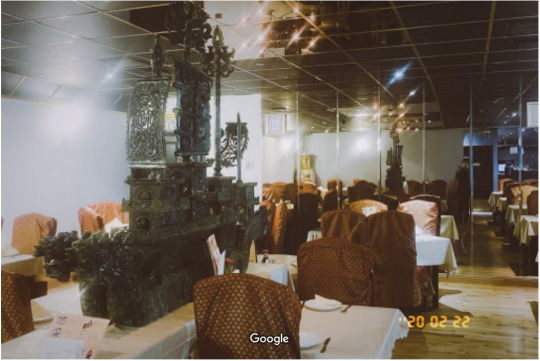
Amerta Chinese restaurant in Monkstown, Co. Dublin... picture from google maps
0 notes
Text
The Hanging of Hettie Gale | Tess Burnett | Published 2024

A mother's love will never die. A mother's fury will live forever...
The Moor is a difficult place for a young woman to grow up in the 1700s and life for Hettie Gale is no different. Abused by her father and abandoned by her family, she builds a new life for herself and her young son. But when Hettie is assaulted by men who lie about the encounter and accused her of a heinous crime, Hettie is sentenced to death.
In the present day, Alice receievs news that her first cousin has gone missing from her cottage on The Moor, where Alice spent many of her childhood summers. Wanting to help find Fleur, she heads to the village and becomes increasingly obsessed with the legend of Hettie Gale. She stumbles upon a set of journals that reveal, bit by bit, clues about what happened to the people who have gone missing on The Moor over the years.
But what links Hettie Gale to Fleur? And if the ghost of Hettie Gale is seeking justice, can ALive do anything to bring the spirit peace and save Fleur from Hettie's inconsolable wrath?
Alice is called away from her life in London to return to the Moor, a lovely place where she had spent a few childhood holidays in a home that was owned by her aunt and uncle. Now, as an adult, Alice must return to assist in the search of her cousin, Fleur, who is missing. She had returned to Crag Cottage with the intent of selling the home.
Alice arrives in Monkstown, meeting a cabbie named Harry, who she quickly takes a liking too. She speaks with the police officer in charge, learning that Fleur has been missing for at least a week, after a fight with the man she had been dating named James Turnkey. James owns the bookshop in town that she remembers fondly, although Mr. Turnkey, James' father, she doesn't remember liking very much.
As the week goes on, Alice begins to feel a connection to a young woman named Hettie Gale, who lived in the 1700s, and had been accused of drowning her child and had been publicly hanged at the Hanging Tree, that still stands today. She feels some sort of connection to Hettie, and begins to believe that there is a further connection between Hettie, Fleur's disappearance and the disappearances of those that have gone missing since the late 1700s.
Sparsed throughout the story is Hettie telling hers, and Alice ultimately learns through a letter written as a death bed confession, realizing that Hettie had been innocent, and her innocence had been brought to the public but she had still been hanged for a crime she didn't commit. Hettie had gotten pregnant as a result of sexual abuse at the hands of her father. She and her son had been playing in the water at Crow Pond, when they were approached by three soldiers. Two of them raped Hettie, and she had told her son to hide in the cave. The third soldier wanted her son for himself, who was later identified to be William Denny-Hurst, from the prominent family in the area.
After Hettie was taken to be tried for drowning her son, which is what the three soldiers had told their superior had happened, and thus started the events that led to Hettie's ghost trying to make a new jury, so that she can prove her innocence and that she could rest.
With Alice's help, Hettie and her son were able to be reunited in death, and Fleur had been found within the cave as well. Now, Alice and James, who had taken a liking to each other, are engaged and later married, and Alice decides not to return to London after Fleur gifts her the cottage as a thank you for saving her life.
0 notes